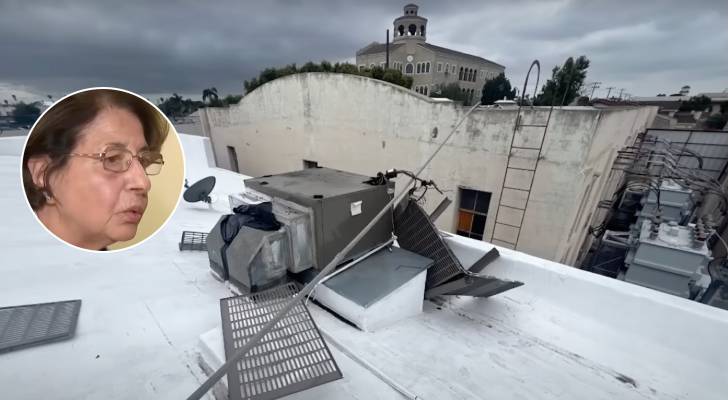A Montana woman believed Amazon reached out to help protect her identity, but instead was defrauded out of nearly $1 million — how she then helped set up the sting to catch her scammer


An elderly Missoula woman lost nearly $1 million in an elaborate scam involving a fake Amazon support person, the “Social Security Department,” a supposed U.S. Marshal and in-person pickups from her front door, reports the Sacramento Bee. The woman, who was not named, said the scam started with a phone call from a person claiming […]
This woman claims she was attacked and robbed of $20K in Atlanta 3 years ago — and that the police are still keeping her cash in lockup. What to do if the cops hold your possessions hostage


Tamia Sims-Irby says she was pistol-whipped and stabbed while being robbed in Atlanta back in 2022. She was 18 years old at the time. Today, at 21, she says the physical wounds have mostly healed — but she’s still fighting to get back the $20,000 that was stolen from her. “It’s definitely a nightmare,” she […]
This Oklahoma man’s car broke down just 2 miles after filling up — thanks to 5 inches of water in the gas station’s fuel tank. Now he’s fighting to be paid for $2.1K damage it caused his car
April 30 started like any other day for Jonathon Kirkwood. The Oklahoma man was on his way to pick up his daughter from school when he stopped at the eExpress Thunder Plaza Travel Stop on South Choctaw Road to fill up his gas tank. Moments later, he was stranded on the side of the road […]
Chicago mom paid $390 for a taco truck that never showed up at her daughter’s grad party — now she’s warning others not to fall for the same scam


For a recent high school graduate in Lake County, Illinois, the arrival of a taco truck was supposed to be the highlight of her graduation party. But the truck her mom paid nearly $400 for never showed up. Now, the family wants to share their story to help others avoid falling for the same scam. […]
Houston man, 52, dies of heart attack days after losing $6,800 in elaborate Wells Fargo scam — now his family wants others to learn the warning signs


Paul Schendel, a 52-year-old father of three from Houston, died of a heart attack just one day after Wells Fargo told him he likely wouldn’t get back the $6,800 he lost in a scam. According to his sister, Karen Schendel, Paul was disabled from a back injury and had long struggled with serious health issues, […]
Las Vegas pizza shop owner blames tourism slump for eating into his business — with the US expected to lose $12.5 billion in travel dollars in 2025, here’s how to survive a slowdown


A reduction in tourism in Las Vegas is hitting small businesses hard. The owner of Naked City Pizza, a popular local joint twice featured on Guy Fieri’s Diners, Drive-Ins and Dives, says he’s seen a significant drop in business lately. Don’t miss I’m 49 years old and have nothing saved for retirement — what should […]
A Massive 25-foot sinkhole swallowed a California construction site, damaging vehicles and a nearby property — here are your options if a ‘shoring failure’ ever lands at your doorstep


A massive sinkhole that opened up in Ventura, California, has damaged several vehicles, forced officials to red-tag a nearby property and left residents questioning the safety of local construction sites. The 25-foot hole appeared in late May near Thompson Boulevard and East Front Street at a construction site for a new apartment complex. While it […]
My dad just died and I found out he cut all 3 of his other kids out of his will for ‘betraying’ him — I feel guilty keeping everything and my siblings are furious. What should I do?
The death of a loved one can be devastating for a family, but when a disputed will quickly follows the funeral, the grieving process often turns into a bitter dispute. Case in point: the Levitt family. Caroline Levitt, a 29-year-old woman who is grieving the loss of her father, has been grappling with backlash from […]
‘This is our lifeline’: Las Vegas seniors with mobility issues say a broken elevator in their building left them stranded in their units for more than a week — what to do if it happens to you


Residents at Harmony Senior Apartments in Las Vegas say they were effectively trapped in their homes for more than a week after the only working elevator in one of the buildings broke down. Many use walkers or wheelchairs and say that without the elevator, it’s impossible to manage basic daily tasks. “This is our lifeline […]
This LA building is being taken over by squatters, crime, vandalism, even fires. Owner has spent $100K on repairs — but the city hasn’t acted. Here’s what she’s up against in California


The owner of a commercial building in Huntington Park, California, says she’s been battling squatters for years — and she’s had enough. Dr. Tahani Soliman, who owns an office near Rugby and Slauson avenues, says trespassers have repeatedly caused fires, stolen utilities and stripped rooftop air conditioning units. Despite spending thousands on repairs and security, […]
